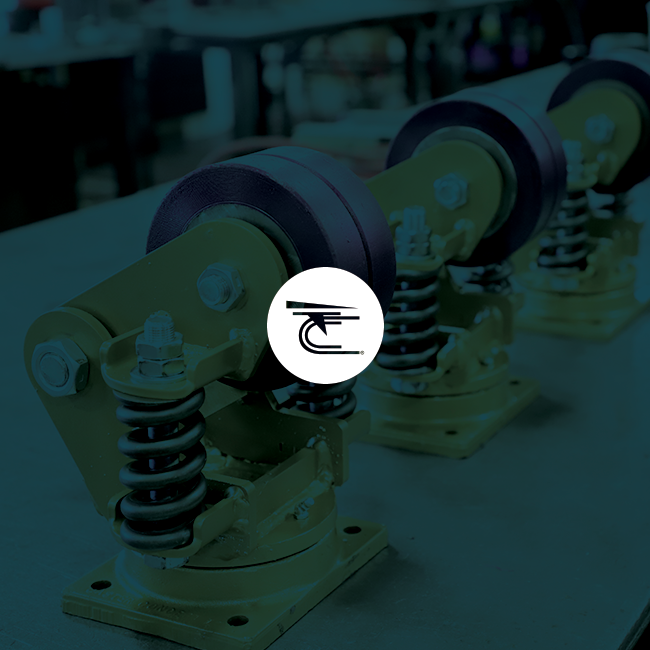

In material handling applications, the consequences from caster failure can be costly. Worker injury and the related insurance claims to the production slowdowns that affect profit margins are all realistic outcomes that no company wants to experience.
That’s why it is very important to take the entire environment into consideration when designing the specifications for your industrial caster application. And even though casters have built-in safety factors designed for most heavy-duty applications, failures can still happen if not treated properly. Let’s look at 5 common reasons for caster failures and how you can avoid them.
When temperatures are elevated (exceeding 100°F) casters begin to fail. At this point, wheel material becomes a concern as softer materials like polymers and rubber will tend to flat spot or even melt.
Temperature increases also become a factor for grease selection. If the wrong grease is used and it starts to break down and liquifies, it won’t lubricate properly. This greatly increases the chance of bearing or swivel section failure. When elevated temperatures are a part of your application, it is best to consult with the factory to properly specify an industrial caster for your application.
In this type of environment, cast iron wheels are a good choice. Our cast iron wheels are constructed of premium Class 30 gray iron, which can withstand extreme heat and still hold strong.
Time is money, but excessive speed can be expensive. Running castors at speeds they’re not designed for can lead to failure. Increased speed means increased impact on the casters when going over uneven surfaces and other obstructions. Excessive speed can also lead to premature failure of poly tires due to all the heat generated from a higher frequency of material deflection.
These failures can be avoided by finding out the speed at which the castor will be used in your application. You should then select a castor with a speed capacity that’s appropriate to those requirements.
For example,we have an HPPT tread formulation that resists heat buildup and can carry higher weight capacities. This makes it ideal for AGVs, Tuggers and other higher speed, higher weight applications.
All casters have a capacity rating. If the load capacity exceeds this rating, the casters will fail. To be safe, choose a caster with a higher capacity than your calculation to allow for shock loads, rocking or poor floors. When choosing a shock absorbing caster, remember that the benefits from these types of casters only happen if you have the right springs to achieve optimal spring deflection.
Caster failure from uneven loading happens if one caster is made to carry a significantly higher proportion of the load. This leads to premature wear of the caster or complete failure with a magnified impact load.
When specifying industrial casters for your application, it is important to know the load distribution on the casters. We offer a wide variety of Spring Loaded and Shock Absorbing Casters including:
Single and Dual Wheel Shock Absorbing Casters
Vertical Mounted Spring-Loaded Casters for Pre-Load Applications
Modern Suspension Systems Casters available in Aluminum or Steel, offering Independent Suspension on Dual Wheel Models
Impact loading occurs when a castor hits a large obstacle and experiences the associated g-forces, causing the castor to bear a load higher than its capacity rating.
Material handling applications can be hard on a caster, which is why a caster with reinforced legs is a good choice. Hercules Casters feature this type of reinforced legs to protect against severe side impact.
In addition to temperature extremes, other factors can affect performance. Wet environments, corrosives, and debris all take their toll on certain castor materials. Rough terrain is another factor that can impart large impact loads and leave indentations on the caster called brinelling. Rough terrain can also cause polyurethane and other soft tires to chunk out and fail prematurely.
When taking casters over rough terrain or grueling environments, it is best to have casters that offer benefits like shock absorption, durability, and corrosion resistance. We offer a full line of caster to meet these challenges:
Aviation and Aerospace Industry Casters
These are some of the most common causes of industrial caster failure in material handling applications, but the good news is that you can help avoid these situations. Fully understanding the type of environment your casters will be subjected to goes a long way in correctly choosing the size and type of caster needed to make your application successful.